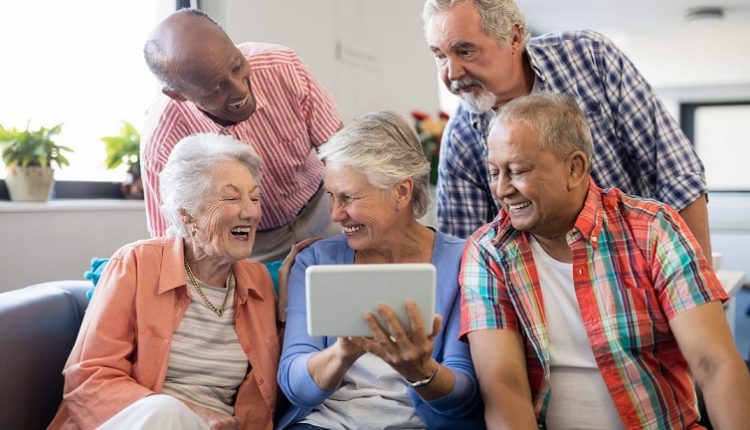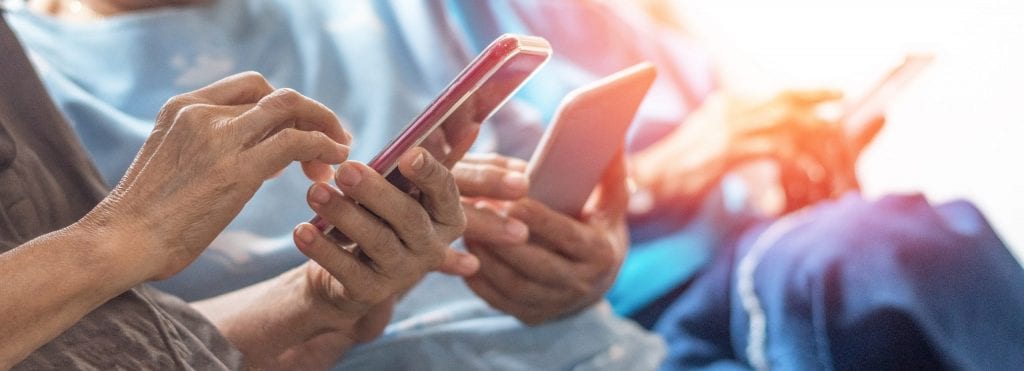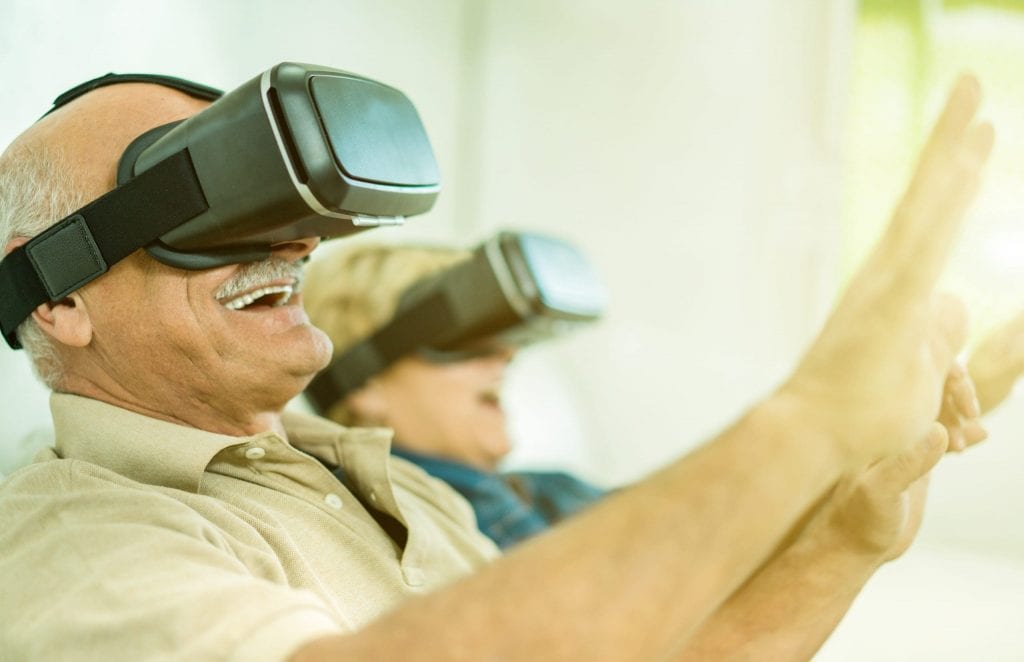
Taking Care of the Seniors Using Technology
The number of seniors is increasing worldwide, resulting from baby boomers’ reaching the senility ages. This growth leads nations to think of various ways to care for the elderly. Caring for the elderly once needed many human resources like caretakers and nurses, but with recent advances in technology, the dependence on their family members or caretakers significantly reduced. The process of taking care of the elderly hasn’t changed much for centuries, and they have always needed doctors and caregivers. Some problems are inseparable parts of senile ages, including loss of mobility, memory loss, loss of hearing and vision, and, last but not least, loneliness.
During recent years the world has witnessed tremendous technological breakthroughs, and, notably, these advances have not forgotten the elderly. The development of smartphones and various systems such as IoT and GPS technology has enabled seniors to take care of themselves without requiring anyone being present beside them. In this article, we will cover some smart technologies that have improved our seniors’ life expectancy. These technologies offer ways to facilitate coping with old age’s hardships, and they can also create a safe and enjoyable atmosphere for the elderly to lead their lives peacefully.
Contents
Internet of Things (IoT)
You might have heard about the IoT, and it is quite a simple concept. The Internet of Things has tremendously evolved during the past few years. It enables devices to be connected to the Internet and makes them possible to be turned and tuned remotely. It has also facilitated the data-sharing capability of various devices. An alternative of IoT alternative has emerged in the medical field, named the Internet of Medical Things (IoMT), and enables families and doctors to control the elderly remotely. It provides insights and visibility about diets, regimens, and drugs.
GPS
GPS developed more than decades ago, but it has witnessed significant changes during the last ten years, and the location accuracy and details provided by the satellites have greatly improved.
But one might question the relationship between GPS and senior care. GPS technology helps the elderly who are prone to become lost. It is essentially vital for those of the elderly who are suffering from Alzheimer’s disease and dementia. According to the recent study by the Alzheimer’s Association, not finding the person for 24 hours can increase the possibility of severe injury or death by up to 50%. Hence, GPS technology can aid families in locating elderly members of their families. GPS chips are relatively small and can be placed on the clothing, inside shoes, or handbags.
Smartphone Apps

The development of smartphones and various applications has been one of the most significant technological improvements the world has experienced during the past few years. The apps developed for seniors have aided both seniors and those who have been taking care of them. Some essential apps are used for heart rate monitoring and reminding the medications. This newly invented technology also keeps a record of seniors’ daily activities and help them stay more active during the day, and send messages to their family members in case of emergency.
The apps can also keep the elderly busy and amused. They are most likely interested in pursuing their religious activities and reading their favorite books. There are endless apps to help them achieve their educational and recreational goals.
Virtual Robots
Thanks to various devices to help seniors in their medical duties, such as taking their medicine or exercising, there is no need for anyone to be available. Some apps based on artificial intelligence (AI) enable the seniors to talk with the app and get some logical replies. These apps thoroughly eliminate the lonely feeling of the elderly.
ERS
Emergency response services (ERS) technology have also developed during the last decade, and they are used to prevent severe dangers while the seniors are alone. Due to the lack of mobility, hearing, and sight, the elderly are potentially at the risk of falling. A company has recently developed a safety belt that can act as an airbag if the elderly falls. The sensors embedded in these belts can notify the emergency services to reach the location as soon as possible.
Memory Loss

Memory loss is one of the main problems that affect the life quality of many seniors. BlipIQ is one of the programs which has developed to help those experiencing memory loss. This program enables family members to upload stories, pictures, audio, and texts related to the past. By that, they can keep the mind of the elderly working. Recently, this program has made use of virtual reality to enhance the experience of the elderly.
The Seniors can use a virtual reality headset technology to visit different parts of the world virtually. It is now possible to sync virtual reality so that multiple people can experience an adventure alongside each other. MyndVR is a tool that aims to return the smile to the faces of the seniors. This technology enables them to visit places outside their usual environment like the Great Wall of China. MyndVR has tested in the leading universities. There is growing evidence for its efficacy in increasing the life expectancy of the elderly.
Aura Frames company has recently created a cloud-based photo frame. This tool enables the family members to upload various pictures and revive the old memories of the elderly. The device comes with an easy-to-use application, and users can easily upload photos from their smartphones or services like Google Photos.
A game has also developed for those who have dementia. Deva World is an entertaining activity in which the person can play on a tablet. A character named Julie walks around her house. She sees various animals and items and tape on each item that brings them to life. This game is for creating a sense of agency. There is scientific evidence that playing this game helps the elderly act independently.
More Resources: Smart Home Technologies that Help Seniors
Mood Control

There is a specific potential for applying technologies and innovative ideas to support and protect the mental wellbeing of the elderly. Alongside various apps for the elderly’s mood control, Hapbee is a wearable gadget. It comes with a smartphone app used to control the moods and make the older adult happy, calm, alert, focused, etc. A technology named Human Charger uses earbuds and conducts light therapy to send some signals to the brain’s photoreceptors. It resolved the sleep issues that most seniors experience.
More Resources: Taking Care of the Seniors Using Technology
Life Satisfaction via Computers
Anxiety in using computers or, in general terms, technophobia is one of the most common feelings experienced by the elderly. Studies show that gaining knowledge of computers and learning to use technology encourages seniors to hinder their negative attitudes towards using computers. A survey conducted by Karavidas et al. showed that the elderly who have a close relationship with computers and smart gadgets have more satisfaction in their lives. It also revealed that having access to a computer caused the senior people to have more independence. It keeps them informed about their health issues. Having a connection to social networks also enables them to have higher life satisfaction.
Medication Assistance
Many seniors are misusing their drugs. Another problem that causes side effects is that our medical community offers narcotic painkillers for various issues like joint pain to depression. Loss of concentration and forgetting to use the drugs as prescribed and at the exact time lead to loss of efficacy. The improvements in technology have led to special pill boxes that allow seniors to know the precise pill they should take. Smart pill bottles are another development that sends the data regarding the medication use to the doctor.
Each of the technologies mentioned in this article has a clear value-add for senior people. These technologies can help them overcome age and ability limitations. It is evident that old age brings about its difficulties, but having access to these technologies makes it easier for senile people to cope with their problems. These devices not only help the seniors spend their time, but they also engender a sense of happiness.
More Resources:
I’m happy that I can use my smartphone to video call my siblings every day. Technology growth is fascinating. I read about BlipIQ and ERS; I can’t believe such things exist!
Yes, as you said, we are really blessed to live in this era to have access to such technologies. GPS and ERS have been so helpful to me. I guess all seniors should be trained to learn how to make the best use of it. They can come to your help, find your way, do your daily chores and on top of all, not feel lonely esp during pandemics.
I’m just glad we’re living in a time we can use modern technology. I can’t imagine being born as my grandparents or even parents and be able to live without using the technologies I now use every day.
I wish my grandma could say the same. Even though she likes using technology, and by technology, I mean her smartphone, it’s still challenging for her to make use of even the most straightforward aspects of her phone. She’s been using regular cell phones and smartphones for around a decade now. However, she’s never gotten comfortable typing and sending messages, let alone using social apps like Whatsapp.
She always tells me that it’s just not something she could efficiently learn to utilize at the age of 80.
I agree with technology for seniors. Because with technology we can arrange many things for them. For example, they can set a program to remember their pill’s hours. Also, with technology, we can improve their life quality by using smart home facilities…
It’s good to keep in touch with seniors through technology and smartphones, but I’m not ok with technology itself. Not at all! I think technology is making us lazy, useless and more distanced. I mean, take a look at the people around you; they are all busy doing nothing on their phones. People do not talk anymore.
Well, I’m not technically savvy, but I am over 50, and I would be terribly sad if I could not use FaceTime to see my granddaughter. She lives in Toronto, and I live in Winnipeg. I played a big part in raising her, and then they had to move when she was 11.
I will repeat that I am not tech-savvy; these things aren’t exactly easy to learn, and I still have a long way to go…but anything that keeps me connected to her is worth learning.
I was totally like you, Emma. My son taught me about the advantages of technology before the pandemic; he showed me photos of my grandson on his smartphone three years ago, so I asked him to buy me a smartphone. Then I understood how easy it is to talk to my family and loved ones I have not seen in years through FaceTime or other applications. Now I can send a text or an email whenever I want. It takes several attempts before you master it, as with any new skill. I am so happy now.
I suggest everyone in their 60’s buy a VR. The only thing is, you have to tell your son or daughter to set it up for you. It makes your life much easier, and you can have an ocean of apps, movies and music.
I recently bought Sony’s. It’s a high-quality product with a lovely design. I cannot express the joy I feel when I see my dad laughing and enjoying the TV series he loves the most. Your elderly parents will love it.
I love how tech is helping our elder parents. I bought my dad Sony VR. He loved it. I can’t express the joy I feel when I see him laughing at his favourite comedies. Last night, I downloaded The Earth documantry ( The one created by BBC) and he was so entertained with it that we had to wait till it finished to eat dinner.
iwatch saved me. It will recognize your faint and immediately call the person you chose before. I’m not against technology at all and try to learn how to use them.
I’m sure that something terrible could have happened to me If I hadn’t had my smartphone two years ago! One day I just fainted due to my heart problems, and it was my Mobile Help Medical Alert System that saved my life. It automatically connected me to the response center, and they sent help. I highly recommend everyone keep pace with technology and smartphones.
However, the younger generation is more familiar with technology and multiple applications. Still, we don’t have to forget that it could enormously impact seniors’ lives!
Familiarize your parents and grandparents with the use of smartphones and various applications. They can improve their communications by making video calls and joining social media. It’s not the only advantage of using technology. By using multiple medical and health applications, they’ll be able to track their health condition and remember to use their medicines. Furthermore, hundreds of brain training mobile phone games can strengthen their memory and brain performance.
Okay, I get it; technology works to our advantage sometimes,
But it seems to me that everything is so high-tech these days that many people, particularly seniors, simply don’t understand it without tons of practice and help! And it’s a never-ending learning process!!
I believe the human touch around seniors is what improves their life. This was achieved years ago through joint family, which ensured there would always be children around. There was a vibrant energy in the house, and this cannot be provided by technology.
People used to eat together and play together….
Technology has ruined all of this.